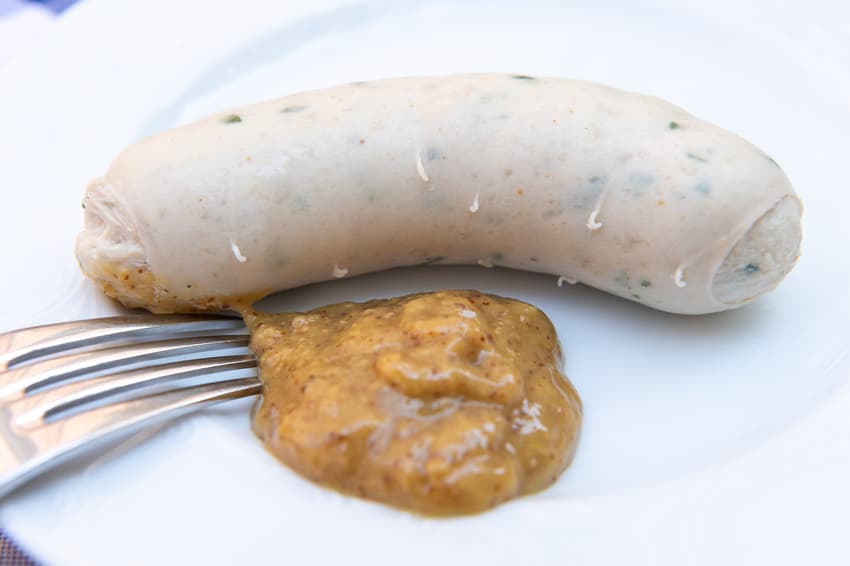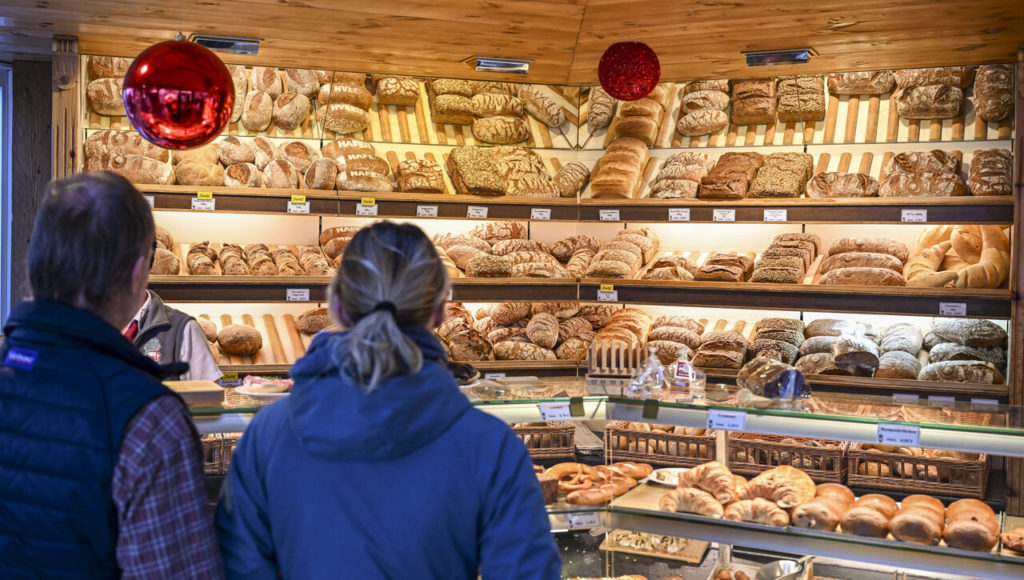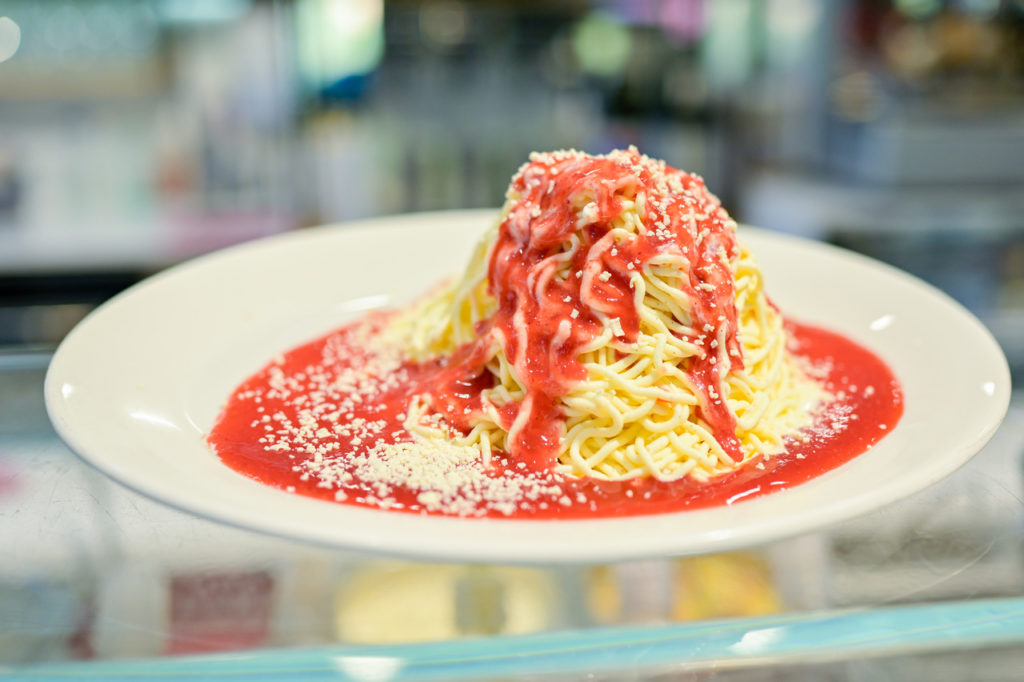7 food mistakes you only make once in Germany

Whether it be bad table manners, or turning your nose up at a seasonal favourite, there are certain food-related sins which if you commit once, you won't repeat in Germany.
Not saying Guten Appetit
If you're dining with a party of Germans, no matter how delicious the meal in front of you may look, you must, at all costs, resist the urge to start tucking in before everyone else is ready to eat and someone declares: Guten Appetit! (“Enjoy your meal!”).
Breaking this unwritten rule may result in dropped forks, face palms and general displeasure from your fellow diners.
Not toasting properly
A faux pas of equal magnitude is failing to toast properly.
READ ALSO: Eight unwritten rules that explain how Germany works
If wine or beer is served with your meal (and it usually will be), wait for someone to propose a toast before you start drinking. When the moment arrives to declare Prost ("Cheers!") make sure you clink glasses with every person around the table, whilst looking each of them in the eye.
Saying that all bread is equal
Germans have a deep and passionate relationship with their bread, which is often considered a fundamental part of their culinary and cultural identity.
READ ALSO: Five delicious breads you have to try in Germany
More than that, Germans are extremely proud of the wide variety of bread types available in the country: there are over 3,200 registered types of bread and rolls in Deutschland and each region has its own distinct bread traditions, recipes, and techniques.

A large selection of different types of bread and rolls at a bakery in Brandenburg. Photo: picture alliance/dpa | Jens Kalaene
So, whatever you do, don't ever make the mistake of saying that all bread is the same in Germany, or you might find yourself very quickly friendless.
Not bringing a birthday cake to work
The consequences of not following this tradition can range from mild teasing to full-on social exclusion.
Unlike in some other European countries, where you may expect to be given sweets or presents as the Geburtstagskind (birthday child) in Germany, the tradition is that the person who has their birthday is expected to bring a cake to work for their colleagues.
A shop bought-cake usually won't cut it either: if you want to guarantee that you're on the promotion list, you'd better prepare the cake yourself.
Thinking there is only green asparagus
Spargel (asparagus) is a big deal in Germany. If you're not an asparagus aficionado yourself, you may mistakenly think that the vegetable only takes the green form and poke quizzically at the white variety if it happens to appear on your plate.
READ ALSO: Spargelzeit: Six things to know about the German love affair with asparagus
However, while the green variety, with its robust texture and earthy taste, is more common outside of Germany, white asparagus is a coveted springtime delicacy in Deutschland, celebrated for its delicate flavour and tender texture.
Saying no to a Spaghetti-Eis
Do yourself a favour: if someone offers you a bowl of Spaghetti Eis - just say yes.

A classic Spaghetti-Eis served at the Intermezzo cafe in Mannheim. Photo: picture alliance/dpa | Uwe Anspach
It might sound disgusting, but Spaghetti Eis doesn't actually contain any pasta. It's a playful name for ice cream pressed through a special machine to create thin strands resembling spaghetti. These ice cream "noodles" are heaped on a plate to form a mound, and sweet strawberry sauce is drizzled over them to imitate tomato sauce.
READ ALSO: Spaghetti ice cream to wobbly Peter: Why we love Germany's sweet summer snacks
Grated white chocolate or coconut often stands in for Parmesan cheese, completing the visual illusion. Invented in the 1960s, Spaghetti-Eis has become an iconic treat in Germany.
Asking for hot mustard or ketchup with a Bavarian Weißwurst
Anyone who orders spicy mustard or ketchup with Weißwurst is committing a real faux pas in Bavaria.
The traditional pale sausage from Germany's southernmost state is traditionally enjoyed with sweet mustard and freshly baked pretzels. But never ketchup.
Comments
See Also
Not saying Guten Appetit
If you're dining with a party of Germans, no matter how delicious the meal in front of you may look, you must, at all costs, resist the urge to start tucking in before everyone else is ready to eat and someone declares: Guten Appetit! (“Enjoy your meal!”).
Breaking this unwritten rule may result in dropped forks, face palms and general displeasure from your fellow diners.
Not toasting properly
A faux pas of equal magnitude is failing to toast properly.
READ ALSO: Eight unwritten rules that explain how Germany works
If wine or beer is served with your meal (and it usually will be), wait for someone to propose a toast before you start drinking. When the moment arrives to declare Prost ("Cheers!") make sure you clink glasses with every person around the table, whilst looking each of them in the eye.
Saying that all bread is equal
Germans have a deep and passionate relationship with their bread, which is often considered a fundamental part of their culinary and cultural identity.
READ ALSO: Five delicious breads you have to try in Germany
More than that, Germans are extremely proud of the wide variety of bread types available in the country: there are over 3,200 registered types of bread and rolls in Deutschland and each region has its own distinct bread traditions, recipes, and techniques.

So, whatever you do, don't ever make the mistake of saying that all bread is the same in Germany, or you might find yourself very quickly friendless.
Not bringing a birthday cake to work
The consequences of not following this tradition can range from mild teasing to full-on social exclusion.
Unlike in some other European countries, where you may expect to be given sweets or presents as the Geburtstagskind (birthday child) in Germany, the tradition is that the person who has their birthday is expected to bring a cake to work for their colleagues.
A shop bought-cake usually won't cut it either: if you want to guarantee that you're on the promotion list, you'd better prepare the cake yourself.
Thinking there is only green asparagus
Spargel (asparagus) is a big deal in Germany. If you're not an asparagus aficionado yourself, you may mistakenly think that the vegetable only takes the green form and poke quizzically at the white variety if it happens to appear on your plate.
READ ALSO: Spargelzeit: Six things to know about the German love affair with asparagus
However, while the green variety, with its robust texture and earthy taste, is more common outside of Germany, white asparagus is a coveted springtime delicacy in Deutschland, celebrated for its delicate flavour and tender texture.
Saying no to a Spaghetti-Eis
Do yourself a favour: if someone offers you a bowl of Spaghetti Eis - just say yes.

It might sound disgusting, but Spaghetti Eis doesn't actually contain any pasta. It's a playful name for ice cream pressed through a special machine to create thin strands resembling spaghetti. These ice cream "noodles" are heaped on a plate to form a mound, and sweet strawberry sauce is drizzled over them to imitate tomato sauce.
READ ALSO: Spaghetti ice cream to wobbly Peter: Why we love Germany's sweet summer snacks
Grated white chocolate or coconut often stands in for Parmesan cheese, completing the visual illusion. Invented in the 1960s, Spaghetti-Eis has become an iconic treat in Germany.
Asking for hot mustard or ketchup with a Bavarian Weißwurst
Anyone who orders spicy mustard or ketchup with Weißwurst is committing a real faux pas in Bavaria.
The traditional pale sausage from Germany's southernmost state is traditionally enjoyed with sweet mustard and freshly baked pretzels. But never ketchup.
Join the conversation in our comments section below. Share your own views and experience and if you have a question or suggestion for our journalists then email us at [email protected].
Please keep comments civil, constructive and on topic – and make sure to read our terms of use before getting involved.
Please log in here to leave a comment.